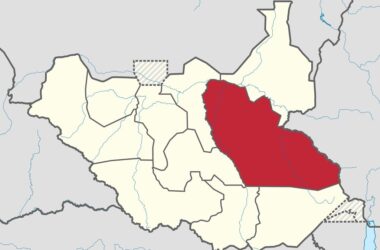By Manas James
The Hol and Nyarweng communities in Duk County, Jonglei State have endorsed customary bye-laws on marriage and revenge killing after six days of review in a workshop, ending on Wednesday.
About 120 attendants that included politicians, chiefs, youth and women leaders, participated in the exercise, supported by Peace Canal, a peacebuilding group operating in Jonglei state.
Speaking to No. 1 Citizen Newspaper, Peter Latjor Chuol, Duk County commissioner, said he came up with the idea because the county was becoming lawless.
“Killing had become the order of the day, especially on petty issues like elopement. So, on May 25, we started to review our customary laws,” he said.
“We came up with three resolutions to tackle marriage-related issues and killing,” he stressed.
The committee agreed on 20 years old and above, should be considered marriageable age and anyone who violates by marrying an underage shall be jailed for a year.
On adultery, the offender shall be fined seven cows and jailed for a year.
In case of murder, the culprit pays 51 cows as blood compensation and a 3-year jail term for unintentional killing, while for a deliberate killing, the convict shall also be killed as per the Penal Code Act.
However, Mr. Gordon Wuor Abiel, the community’s deputy head, said the workshop was fruitful and that traditional chiefs have been tasked with overseeing the implementation process.
“All six payams of Duk County had representatives in the meeting. We came out with those resolutions on revenge killing and marriage,” he said.
The community tasked the county commissioner and chiefs to handle the issues in traditional courts in respected of all others.
Meanwhile, Aruai Majok Deng, the head chief of Duk County, said the bye-laws will help restore law and order and that they are ready to be the custodians.
South Sudan’s legal system is pluralistic, where customary law is applied alongside statutory law.
The customary law is not uniform across the country; it often varies from one community to another.

